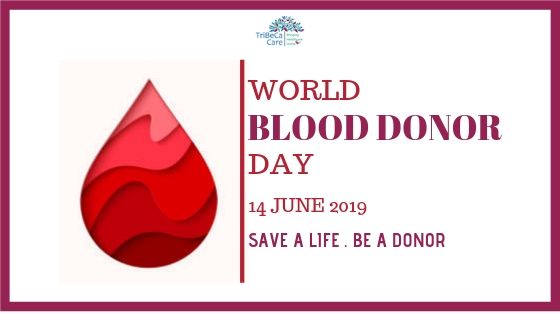A drop of blood can save a life!
Blood donation is the highest kind of social service that you can offer free of cost. On the World Blood Donor Day, do this social service. Be a blood donor!
The blood you donate acts as a lifeline in an emergency and for people who need long-term treatments. It is our civic duty to donate blood and save our fellow citizens.
However, the blood that is getting donated must be safe and free from all kinds of contamination. Blood transfusion is one of the most crucial components of health care. It contributes to saving millions of lives each year.
Blood donation additionally permits vastly complicated medical and surgical intercessions and dramatically improves the quality of life with a prevention of acute and chronic conditions.
According to World Health Organization (WHO) reports, following are the cases where immediate blood supply is necessary:
- women with complicated pregnancy, such as ectopic pregnancies and haemorrhage before, during or after childbirth
- children with severe anaemia due to malaria or malnutrition
- people with acute trauma as well as many complex medical and surgical procedures
- cancer patients
- patients with thalassemia and sickle cell disease
- people with haemophilia
National necessities for blood are, in part, determined by the dimensions of the country’s health care system and its coverage of the population. In India diagnostic services and treatment choices are more limited. Thus, access to safe blood through donors could help to prevent a lot of deaths. So in order to make a healthy India, donating blood could be the only possible way. Moreover, in developing and transitional states, chronic blood shortages are common. Sophisticated health care provision may be available in urban centres. But large sectors of the population, particularly in rural areas, often have access only to limited health service in which blood transfusion may be unsafe or not available at all.
Therefore, blood supplies need to be constantly replenished as blood has a limited shelf-life. We should perpetually try to donate blood to keep up adequate blood stocks within the face of rising clinical demands, increasingly stringent donor selection criteria and the loss of older donors.
WHO estimates that blood donation by 1% of the population is the minimum requirement to satisfy a nation’s most simple necessities for blood. We, the growing population of India, especially the youth, should vow to donate blood at least twice a year.
Blood and blood products are an exclusive and treasurable national resource. This is because they are accessible only from individuals who donate blood or its components. So the new India should make an effort by themselves to come forth, donate blood, and make the smile on the ailing faces broader.
For more information, call us at: 03340277777 / 8017770323 or email us at: enquiry@newwpsite.tribecacare.com. Visit our page at: www.tribecacare.com.

